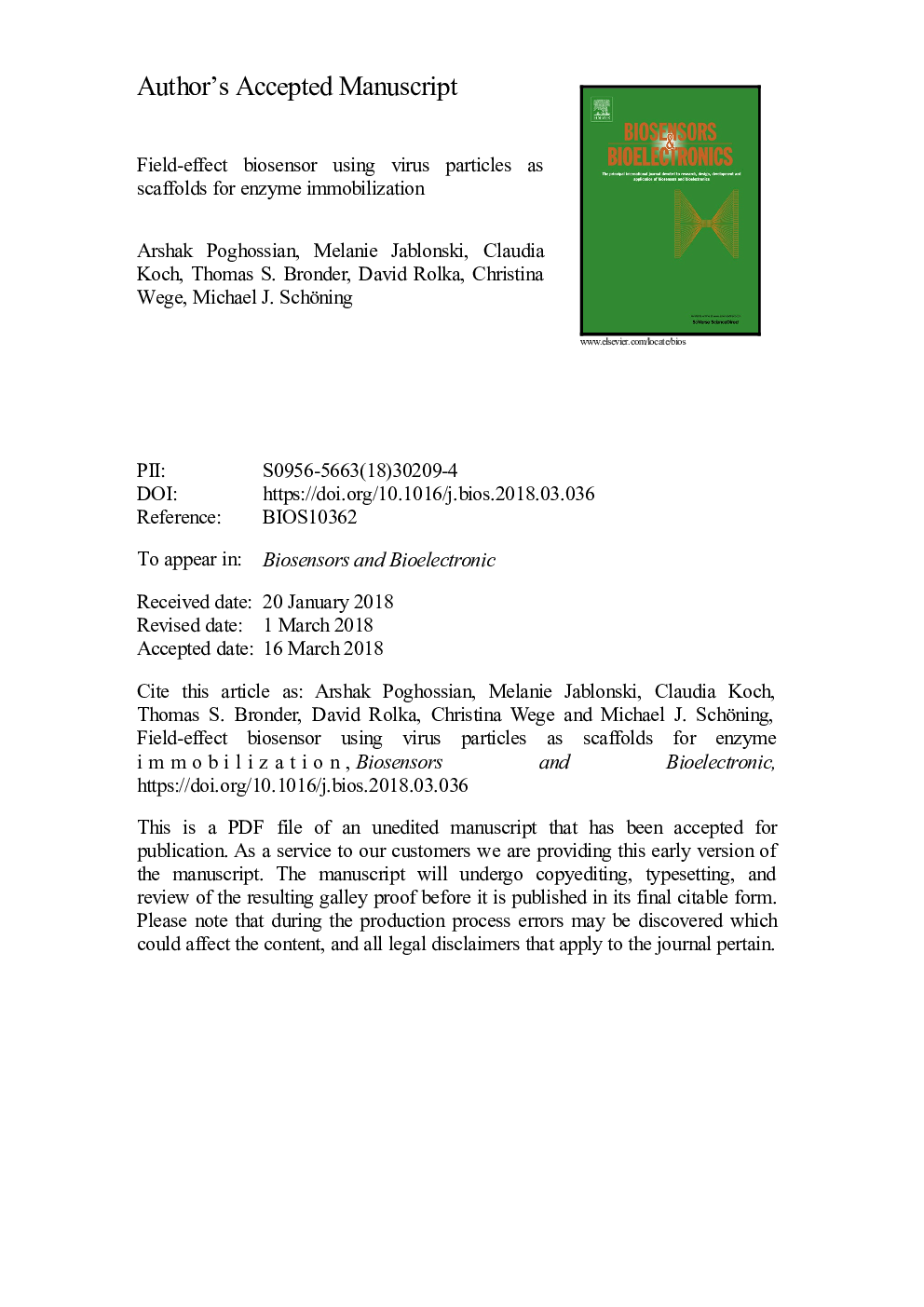| Article ID | Journal | Published Year | Pages | File Type |
|---|---|---|---|---|
| 7229438 | Biosensors and Bioelectronics | 2018 | 23 Pages |
Abstract
A field-effect biosensor employing tobacco mosaic virus (TMV) particles as scaffolds for enzyme immobilization is presented. Nanotubular TMV scaffolds allow a dense immobilization of precisely positioned enzymes with retained activity. To demonstrate feasibility of this new strategy, a penicillin sensor has been developed by coupling a penicillinase with virus particles as a model system. The developed field-effect penicillin biosensor consists of an Al-p-Si-SiO2-Ta2O5-TMV structure and has been electrochemically characterized in buffer solutions containing different concentrations of penicillin G. In addition, the morphology of the biosensor surface with virus particles was characterized by scanning electron microscopy and atomic force microscopy methods. The sensors possessed a high penicillin sensitivity of ~ 92â¯mV/dec in a nearly-linear range from 0.1â¯mM to 10â¯mM, and a low detection limit of about 50â¯ÂµM. The long-term stability of the penicillin biosensor was periodically tested over a time period of about one year without any significant loss of sensitivity. The biosensor has also been successfully applied for penicillin detection in bovine milk samples.
Related Topics
Physical Sciences and Engineering
Chemistry
Analytical Chemistry
Authors
Arshak Poghossian, Melanie Jablonski, Claudia Koch, Thomas S. Bronder, David Rolka, Christina Wege, Michael J. Schöning,
